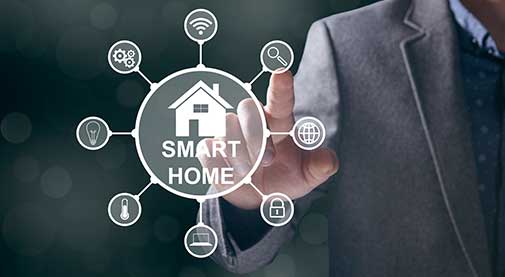In recent years, the concept of a smart home has transitioned from a futuristic dream to a present-day reality. As homeowners and businesses increasingly turn to smart home technology, it's essential to weigh the pros and cons of this innovation. From energy-saving benefits to potential security risks, this comprehensive guide will help you understand how this technology can fit into your life.

What is Smart Home Technology?
Smart home technology refers to a range of devices and systems that automate tasks traditionally handled manually. These devices are connected via the internet, allowing users to control them remotely. Common examples include smart thermostats, lighting systems, security cameras, and voice-activated assistants. As the Eufy Smart Home Guide illustrates, these innovations aim to enhance convenience, improve security, and increase energy efficiency.
Advantages of Smart Home Technology
The benefits of incorporating smart home technology into your living space are numerous:
Increased Convenience
One of the main attractions of a smart home is the convenience it offers. You can control your home environment with just a voice command or a tap on your smartphone. Whether it's adjusting the thermostat or checking who is at your front door, smart home cleaning and automation make daily tasks easier.
Energy Efficiency
Smart devices, such as thermostats and lights, can significantly reduce energy consumption. They adapt to your habits, turning off when not needed, and can be programmed to operate during non-peak hours. This not only saves money but also contributes to environmental conservation.
Improved Security
With smart home security systems, you can monitor your property in real time. Features like motion detectors, smart locks, and surveillance cameras provide an added layer of protection. Learn more about how smart homes affect insurance rates and enhance your security setup.
Flexibility and Customization
Smart home systems offer flexibility in terms of expansion and customization. You can start with a few devices and gradually add more as needed. The expansion of your smart home system allows you to tailor the setup to your specific needs and lifestyle.
Disadvantages of Smart Home Technology
Despite the advantages, there are also notable drawbacks to consider:
High Initial Costs
The upfront cost of installing smart home devices can be significant. While they may lead to savings over time, the initial investment can be a barrier for many homeowners and businesses.
Security and Privacy Concerns
As smart home technology relies on internet connectivity, it is vulnerable to hacking and other cyber threats. Privacy concerns arise from the data collected by these devices, which can be accessed by unauthorized users if not properly secured.
Technical Complexity
Setting up and maintaining a smart home system can be complex, requiring a certain level of technical expertise. Issues such as device incompatibility and software updates can pose challenges for users.
Dependence on Internet Connectivity
Smart home devices require a stable internet connection to function effectively. Any disruption in connectivity can render them useless, affecting the overall functionality of your home or business.
Balancing the Pros and Cons
Deciding whether to incorporate smart home technology into your life involves balancing its pros and cons. While the convenience and efficiency are appealing, the potential security risks and costs require careful consideration. For more insights, explore our article on smart homes in multi-family housing.
Conclusion
As smart home technology continues to evolve, it presents exciting opportunities and challenges for homeowners and businesses alike. By understanding the pros and cons, you can make informed decisions that enhance your living or working environment while safeguarding your privacy and security.

FAQs
What types of devices are considered smart home technology?
Smart home technology includes devices such as smart thermostats, lighting, security systems, and voice-activated assistants. These devices connect to the internet to provide automation and remote control features.
How can smart home technology save energy?
Smart home devices save energy by optimizing usage based on your habits and preferences. For instance, smart thermostats adjust temperatures when you are away, and smart lights turn off automatically when not in use.
Are there risks associated with smart home technology?
Yes, risks include potential security breaches, privacy concerns, and the need for technical expertise. Proper setup and regular updates can mitigate these risks.

